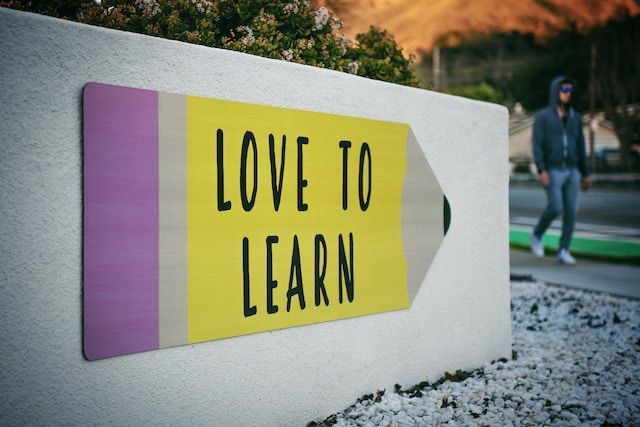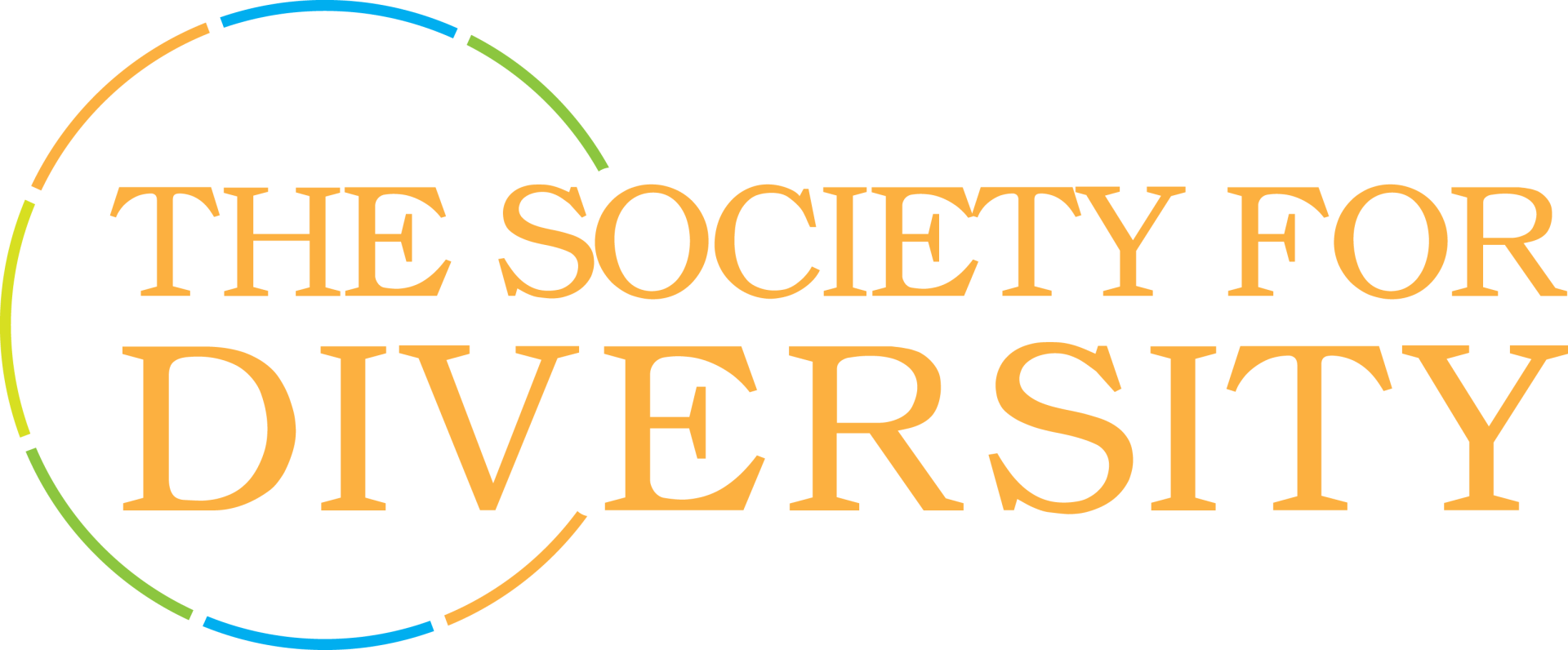DEIA Dictionary
Welcome to the DEIA Dictionary, an introductory list of key terms and definitions found in diversity conversations in the workplace, education, and everyday life. Whether you're a student, teacher, business leader, or simply someone interested in learning more, this tool is for anyone seeking to create more inclusive environments.

Why is DEIA important?
DEIA can help create a more just and equitable society. When people from different backgrounds are able to work together, they can bring new ideas and perspectives to the table. This can lead to better decision-making and innovation.
In addition, DEI can help create a more welcoming and inclusive environment for everyone. When people feel like they belong, they are more likely to be productive and engaged.
Terms and Definitions
- Ableism: Discrimination against people with disabilities.
- Accessibility: The practice of ensuring that all people have equal access to opportunities and resources, regardless of their abilities or disabilities; requires removing physical and attitudinal barriers that prevent people with disabilities from accessing and participating in society.
- Affirmative action: Policies and practices that are designed to increase opportunities for historically underrepresented groups.
- Ageism: Discrimination against people based on their age.
- Allyship: The act of actively supporting and advocating for marginalized groups. Allies can be anyone, regardless of their own social identity.
- Anti-racism: The belief that racism is a system of oppression that can be dismantled through intentional action. Anti-racism work can include things like challenging racism, educating others about racism, and supporting organizations that are working to dismantle racism.
- Apartheid: A system of racial segregation and discrimination in South Africa that was in place from 1948 to 1994.
- Assimilation: The process of adapting to a dominant culture by giving up one's own cultural identity.
- Authenticity: The quality of being true to oneself. It is the ability to be genuine and sincere, even when it's difficult.
- Belonging: The feeling of being accepted and valued for who you are. It is the sense of being part of something larger than yourself.
- Bias: A preference for one thing over another, often unfairly. It can be conscious or unconscious, and it can influence our thoughts, decisions, and actions.
- BIPOC: An acronym for Black, Indigenous, and People of Color.
- Cisgender: A person whose gender identity aligns with the sex they were assigned at birth.
- Colonization: The process of one group of people taking control of another group of people and their land.
- Colorblindness: The belief that race is not a factor in people's lives and that we should all be treated equally regardless of our race.
- Colorism: The prejudice or discrimination against people of color based on the lightness or darkness of their skin.
- Critical race theory (CRT): A cross-disciplinary examination of society and culture that considers the role of race and racism in shaping institutions and systems. CRT has been used to analyze a wide range of issues, including education, criminal justice, and housing.
- Disability: A physical or mental impairment that substantially limits one or more major life activities.
- Disability justice: A movement that advocates for the rights of people with disabilities and challenges the ableist assumption that people with disabilities are less than capable.
- Diversity: The variety of human experiences, perspectives, and identities. Diversity can be based on factors such as race, ethnicity, gender, sexual orientation, religion, age, disability, and socioeconomic status.
- Equity: The fair and just distribution of resources and opportunities. Equity is not the same as equality, which is the equal treatment of all people regardless of their differences. Equity considers the different needs and experiences of people to ensure that everyone has an equal chance to succeed.
- Ethnicity: A shared cultural heritage, including language, religion, and traditions.
- Ethnocentrism: The belief that one's own ethnic group is superior to others.
- Gender expression: The way a person presents their gender to the world through their appearance, behavior, and mannerisms.
- Gender identity: A person's internal sense of their own gender.
- Hegemony: The dominance of one group over another.
- Heterosexism: The belief that heterosexuality is the only normal and natural form of sexual orientation.
- Homophobia: The fear or hatred of gay, lesbian, bisexual, and transgender people.
- Inclusion: The act of welcoming and accepting people from all backgrounds and experiences. Inclusion is about creating a space where everyone feels safe, respected, and valued.
- Intersectionality: The way that different forms of oppression, such as racism, sexism, and classism, intersect to create unique experiences for individuals.
- Intersex: A person who is born with sex characteristics that do not fit neatly into the categories of male or female.
- LGBTQ+: An acronym for lesbian, gay, bisexual, transgender, queer, and other sexual and gender minorities.
- Marginalization: The process of pushing people to the edges of society and denying them access to power and resources.
- Marginalized groups: Groups of people who are systematically excluded from power and resources. Marginalized groups can be based on factors such as race, ethnicity, gender, sexual orientation, religion, age, disability, and socioeconomic status.
- Microaggressions: Everyday verbal, nonverbal, and environmental slights, insults, put-downs, and insults that communicate hostile, derogatory, or negative messages to members of marginalized groups.
- Microinequities: The everyday, subtle ways in which people are treated differently because of their race, gender, or other social identities.
- Misogyny: The hatred of women.
- Multiculturalism: The belief that all cultures are equally valuable and should be respected.
- Neurodiversity: A term used to describe the natural variation in human brains. This variation includes conditions such as autism spectrum disorder, attention deficit hyperactivity disorder (ADHD), dyslexia, and dyspraxia, among others.
- Neurotypical: A term used to describe people whose brains function in a way that is considered to be "normal" or "typical."
- Oppression: The systematic mistreatment of a group of people based on their race, gender, or other social identities.
- Patriarchy: A system of social organization in which men hold the power and women are subordinate.
- Pay equity: The state of being paid the same amount for doing the same work, regardless of gender, race, or other protected characteristics.
- Privilege: Unearned advantages that people have based on their social identity, such as race, gender, or class.
- Queer: An umbrella term that refers to people who are not cisgender or heterosexual.
- Race: A social construct that is used to categorize people based on physical characteristics, such as skin color, hair texture, and facial features.
- Racism: The belief that one race is superior to another, and the prejudice and discrimination that results from this belief.
- Respect: The act of showing regard or consideration for someone or something. It is the willingness to accept someone or something for who or what they are, regardless of their differences
- Sexism: The belief that one sex is superior to another, and the prejudice and discrimination that results from this belief.
- Social identity: The groups that a person identifies with, such as their race, gender, ethnicity, religion, sexual orientation, and class.
- Socialization: The process of learning the norms and values of a society.
- Stereotype: A generalized belief about a group of people that is often inaccurate and harmful.
- Systemic racism: The ways in which racism is embedded in the fabric of society, such as through laws, policies, and institutions.
- Transgender: A person whose gender identity does not match the sex they were assigned at birth.
- Transphobia: Discrimination against transgender people.
- Tolerance: The ability to accept people or things that are different from you. It is the willingness to see things from another person's perspective and to respect their beliefs and values, even if you don't agree with them
- Unconscious bias: Biases that people hold without being aware of them.
- White privilege: The unearned advantages that white people have in society because of their race.
- White washing: White washing is the act of making something appear whiter than it is through the use of language, images, or other forms of representation. White washing can be used to erase or minimize the experiences of people of color.
- Woke: A slang term that refers to being aware of and actively engaged in social justice issues. The term has been used to describe people who are critical of racism, sexism, and other forms of oppression.
Contact Us
Privacy Policy
| Do Not Share My Information
| Conditions of Use
| Notice and Take Down Policy
| Website Accessibility Policy
© 2024
The content on this website is owned by us and our licensors. Do not copy any content (including images) without our consent.
